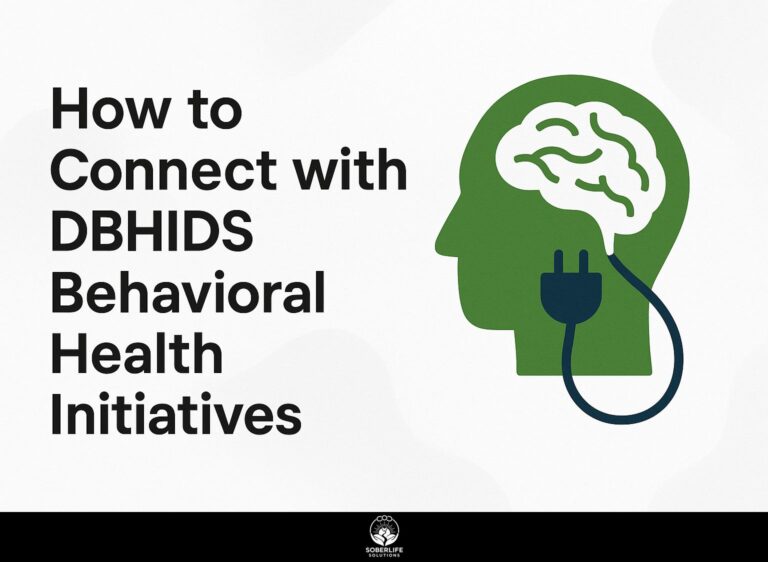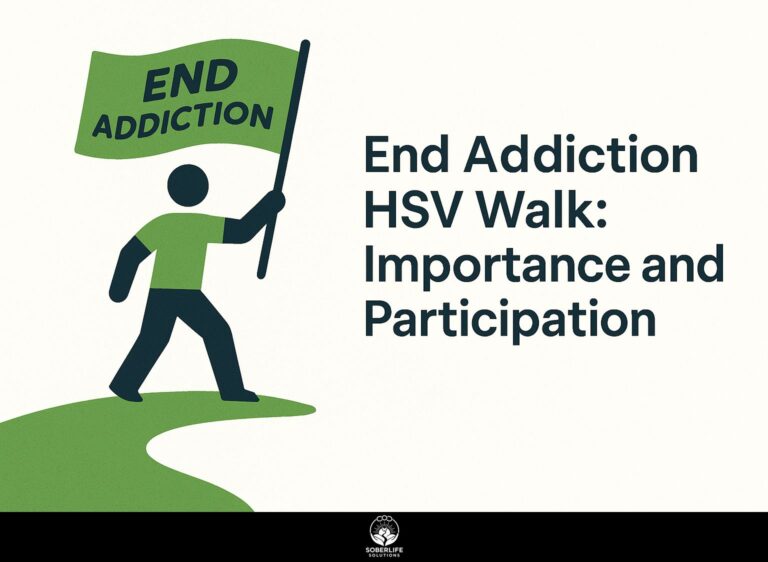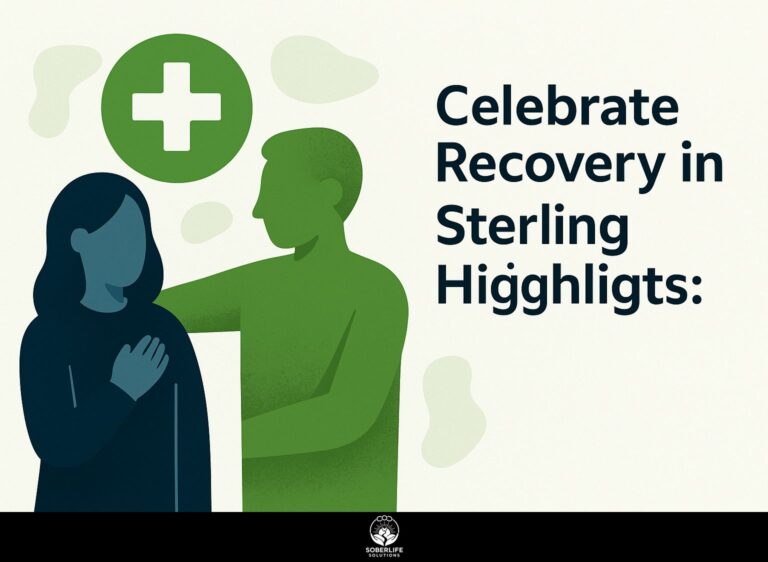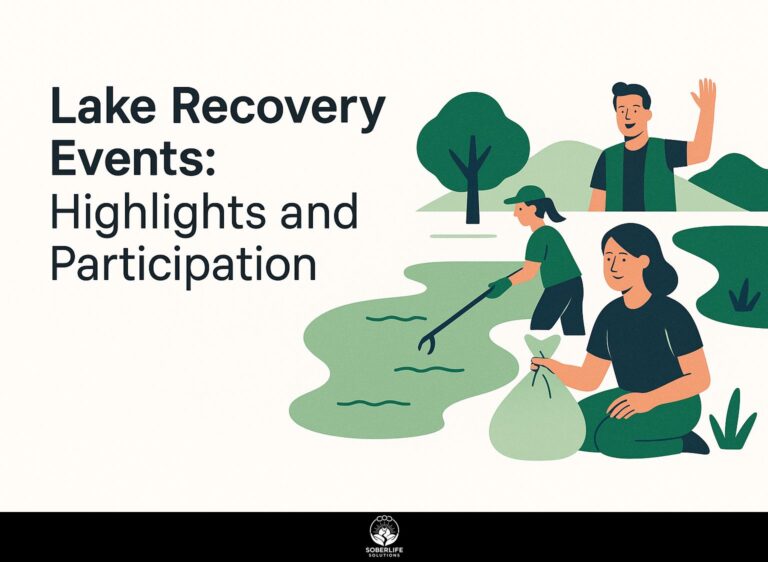Recovery Conference: Goals and How to Join
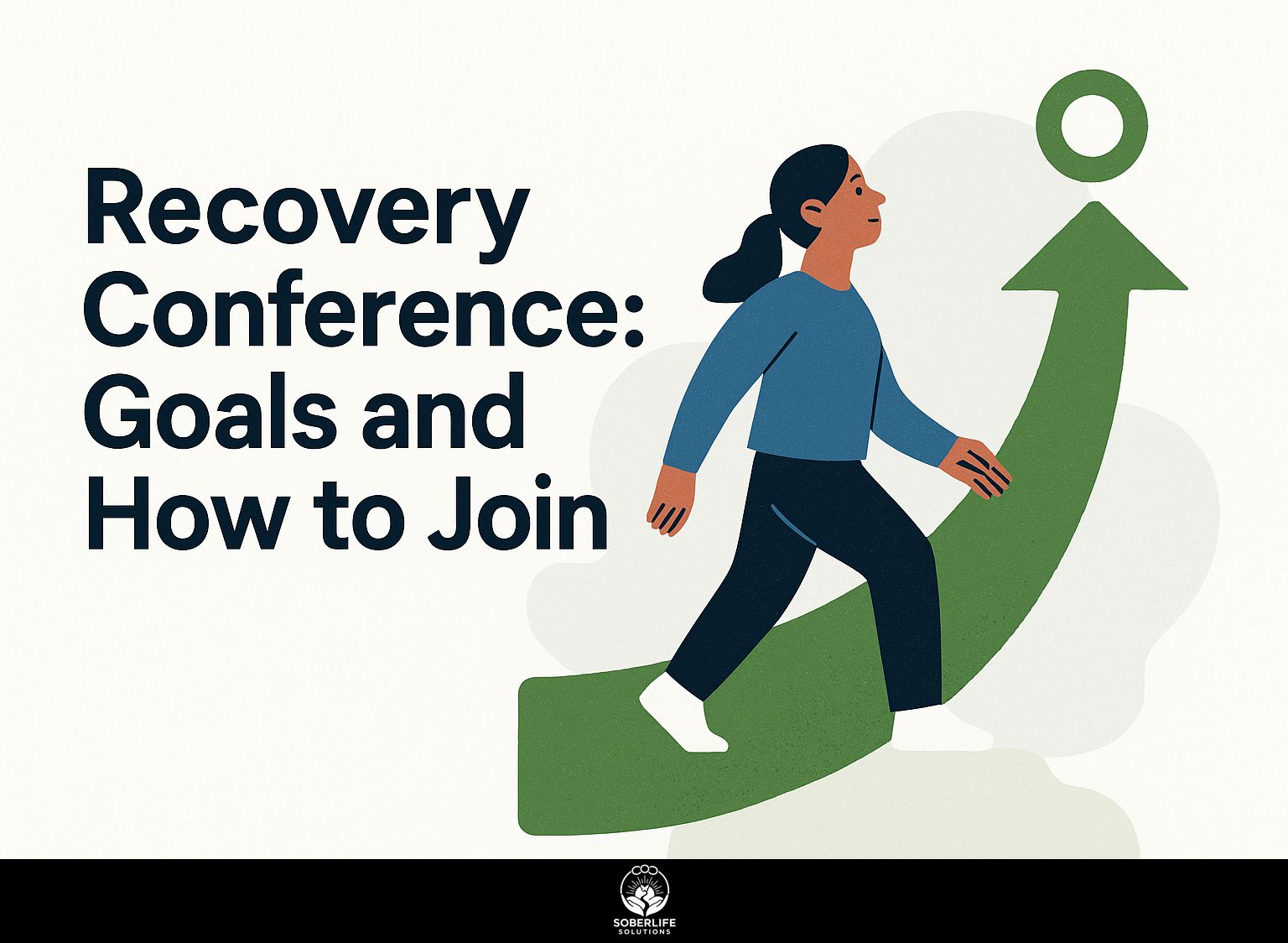
Are you a college student dealing with recovery from substance use, gambling addiction, or mental health problems? The Recovery Conference at Saint Joseph’s University in Philadelphia, PA-set at the Campion Student Center-delivers targeted goals like building support networks and evidence-based strategies. Learn how to join and gain practical tools for thriving in recovery.
Key Takeaways:
Primary Goals of the Conference
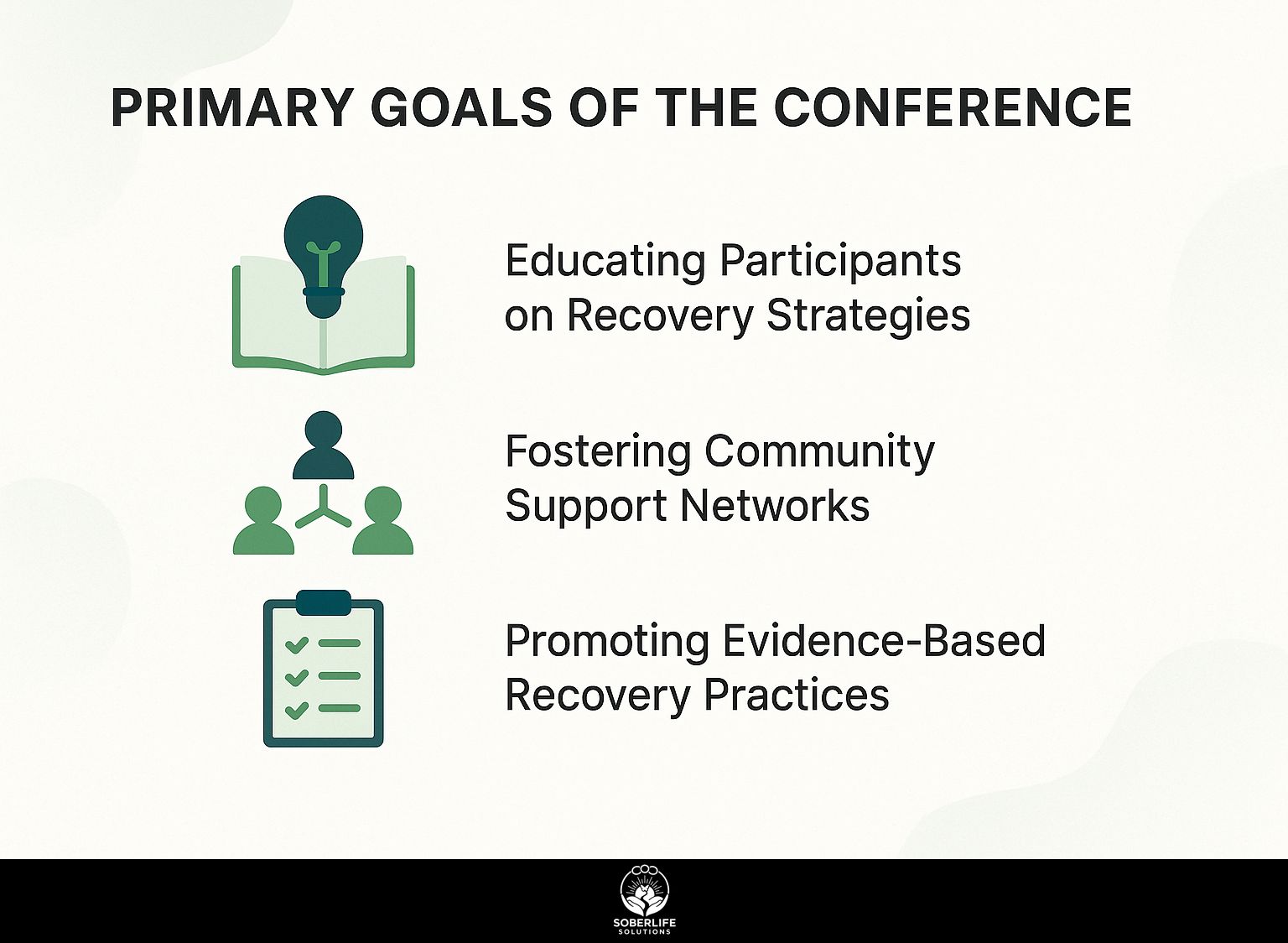
The conference’s primary goals center on equipping attendees with tools for effective collegiate recovery, fostering peer support networks, and advancing evidence-based approaches to substance use and mental health, as outlined in the American Counseling Association’s 2023 guidelines – principles also emphasized by SAMHSA.
Educating Participants on Recovery Strategies
Sessions will teach 10 main recovery methods. For example, harm reduction methods that cut overdose risks by 50%, according to CDC data.
These sessions offer hands-on workshops that use SMART Recovery’s four-point program to help you handle your recovery.
To implement these effectively, follow these numbered steps:
- Assess individual needs using a 15-minute strengths-based tool from Caron Treatment Centers, avoiding overdiagnosis by focusing on personal assets rather than deficits.
- Train on medication-assisted treatment through 30-minute role-plays, with about 2 hours of preparation to simulate real scenarios.
- Apply neuroplasticity principles via daily 10-minute mindfulness exercises, supported by a 2021 Journal of Addiction Medicine study showing 35% improved outcomes in habit change.
Workshops include pitfalls like ignoring cultural contexts-always tailor strategies to diverse backgrounds for better engagement.
Fostering Community Support Networks
Organized peer support groups create connections and increase retention in recovery programs by 45%. The SAFE Project’s campus program shows this result and reaches more than 500 students each year.
To replicate this success, implement these five best practices.
- First, host weekly peer-led meetings via Zoom’s free tier for 1-hour sessions, fostering open discussions.
- Second, pair mentors using the Kinney Center’s matching app, which sets up in 20 minutes and tracks engagement metrics.
- Third, integrate creative activities like art therapy at $50 per session to encourage emotional expression.
- Fourth, offer facilitator training through SAMHSA’s free online modules, emphasizing active listening.
- Fifth, launch groups at semester starts and evaluate quarterly with anonymous surveys.
Per Pennsylvania Counseling Association studies, such approaches reduce isolation by 30%, enhancing long-term recovery.
Promoting Evidence-Based Recovery Practices
Evidence-based practices like cognitive behavioral therapy (CBT) sessions reduce relapse by 30% in college settings, per a 2022 Drexel University trial involving 150 participants.
To implement similar strategies, consider these four actionable practices.
- First, use the trauma-informed care protocols from Unity Recovery’s free PDF guide by completing a 45-minute online training to create safe spaces.
- Second, use CBT worksheets from printable templates like Therapist Aid, limiting to 5 per week to prevent overload and build coping skills.
- Third, integrate music therapy with apps like Calm ($69/year), scheduling 20-minute sessions for stress reduction.
- Fourth, use Headspace for mindfulness exercises (the free basic version). Do 10-minute guided meditations each day.
NBCC offers CE credits for these; a $10K program can save $50K in health costs, per SAMHSA data.
Target Audience and Benefits
The conference serves clinicians, educators, and students at schools such as Temple University and Ursinus College. It provides 8 NBCC CE credits and methods to address clinician burnout, which impacts 60% of recovery workers according to APA surveys.
Attendees gain 20% better psychological flexibility scores post-event, based on prior year data from participant surveys. Dive into actionable sessions on evidence-based tools, like the Mindfulness-Based Stress Reduction (MBSR) program, which a 2022 JAMA study showed cuts burnout by 28% among healthcare workers.
Network with experts endorsed by Chi Sigma Iota for counseling excellence.
Benefits shine in real scenarios:
- Neurodivergent students at community colleges receive complete support through creative expression workshops, which lower dropout rates by 25% based on data from regional pilots.
- Peer support programs offer $5K ROI with 3x engagement boosts, as calculated in a 2023 university trial.
Implement these immediately for lasting impact.
Event Logistics and Schedule
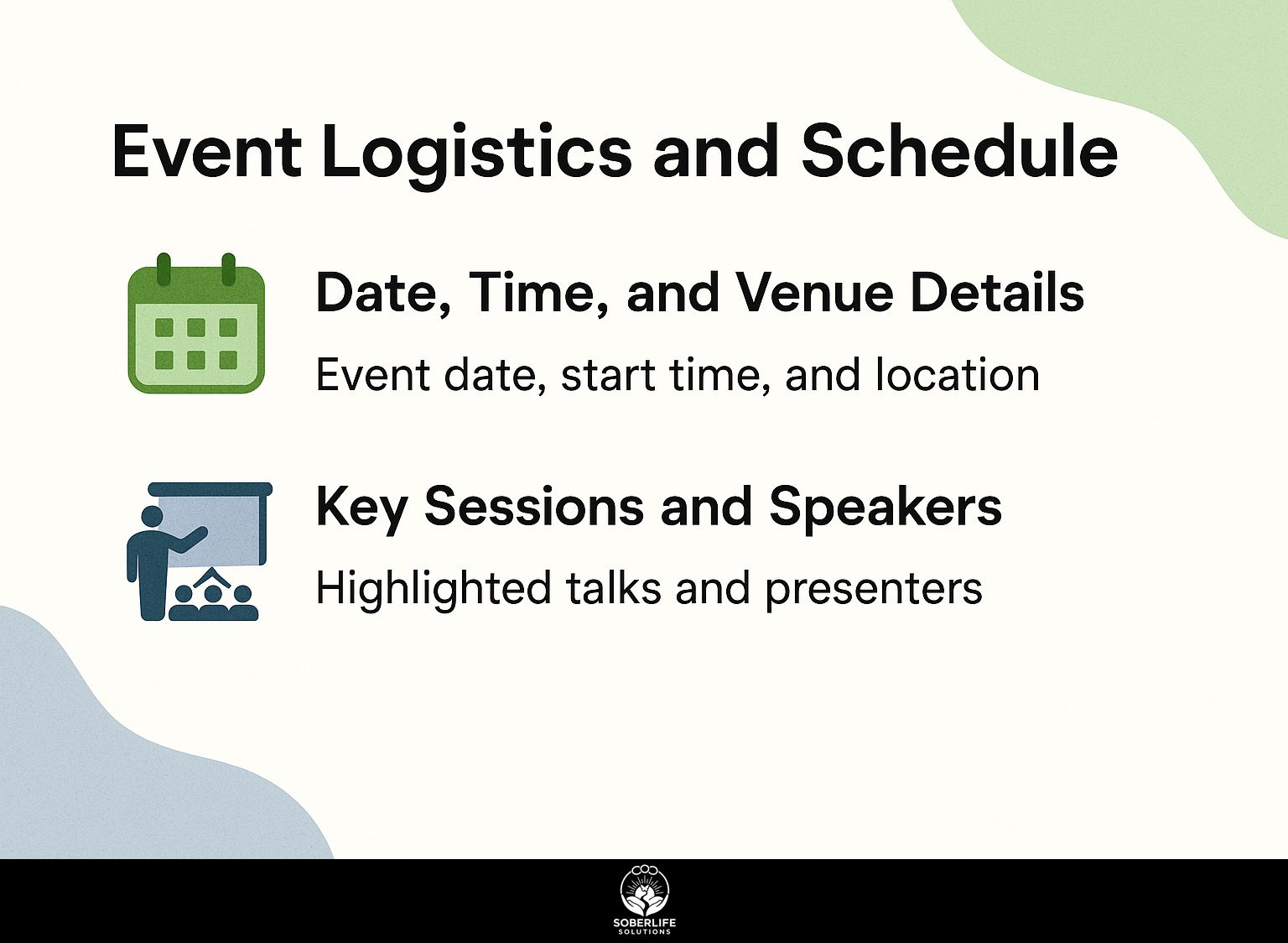
The one-day event at Saint Joseph’s University’s Campion Student Center in Philadelphia PA runs from 8 AM to 5 PM, featuring keynote speakers and breakout sessions optimized for 300 attendees.
Date, Time, and Venue Details
Set for October 15, 2023, from 8:00 AM to 5:00 PM ET at Saint Joseph’s University’s Campion Student Center, 5600 City Ave, Philadelphia PA 19131, with parking for 200 vehicles and shuttle from SEPTA stops.
Navigate easily with these steps:
- Arrive via I-76 exit 339 for a 15-minute drive from center city-avoid rush hour (7-9 AM) to prevent delays.
- Check in at Doyle Banquet Hall, where badges are issued in just 5 minutes.
- For virtual attendees, access the hybrid stream via the Eventbrite link; test your connection 24 hours prior using Zoom’s diagnostic tool.
The venue map shows the student center in the middle of the campus, with entrances marked on the university’s website (sju.edu/map).
In case of rain, indoor sessions proceed as planned, with umbrellas available at shuttles.
Key Sessions and Speakers
Highlights include a keynote by Harry Levant from Hazelden Betty Ford on trauma-informed care, plus breakout sessions on music therapy led by SAFE Project experts, drawing 150 participants last year.
The full agenda expands on these with sessions focused on practical information for addiction recovery. Use this schedule to plan attendance and maximize networking.
| Time | Session | Speaker | Focus | Metrics |
|---|---|---|---|---|
| 9 AM | Keynote | Harry Levant | Recovery strategies | 200 attendees |
| 11 AM | Breakout | Savage Sisters | Peer support | 50 spots, 40% female give the power toment gain |
| 12 PM | Networking Lunch | Caron Treatment Centers sponsor | 45 minutes | 80% connection rate |
| 2 PM | Sponsor Spotlight | Belmont Behavioral Health | Harm reduction, free resources | N/A |
A Temple University case study post-event implementation boosted program reach by 35%, per their 2022 report, demonstrating real-world impact as underscored by the City of Philadelphia’s COMMUNITY HEALTH NEEDS ASSESSMENT 2022, which highlights persistent community needs in addiction recovery.
How to Join the Conference
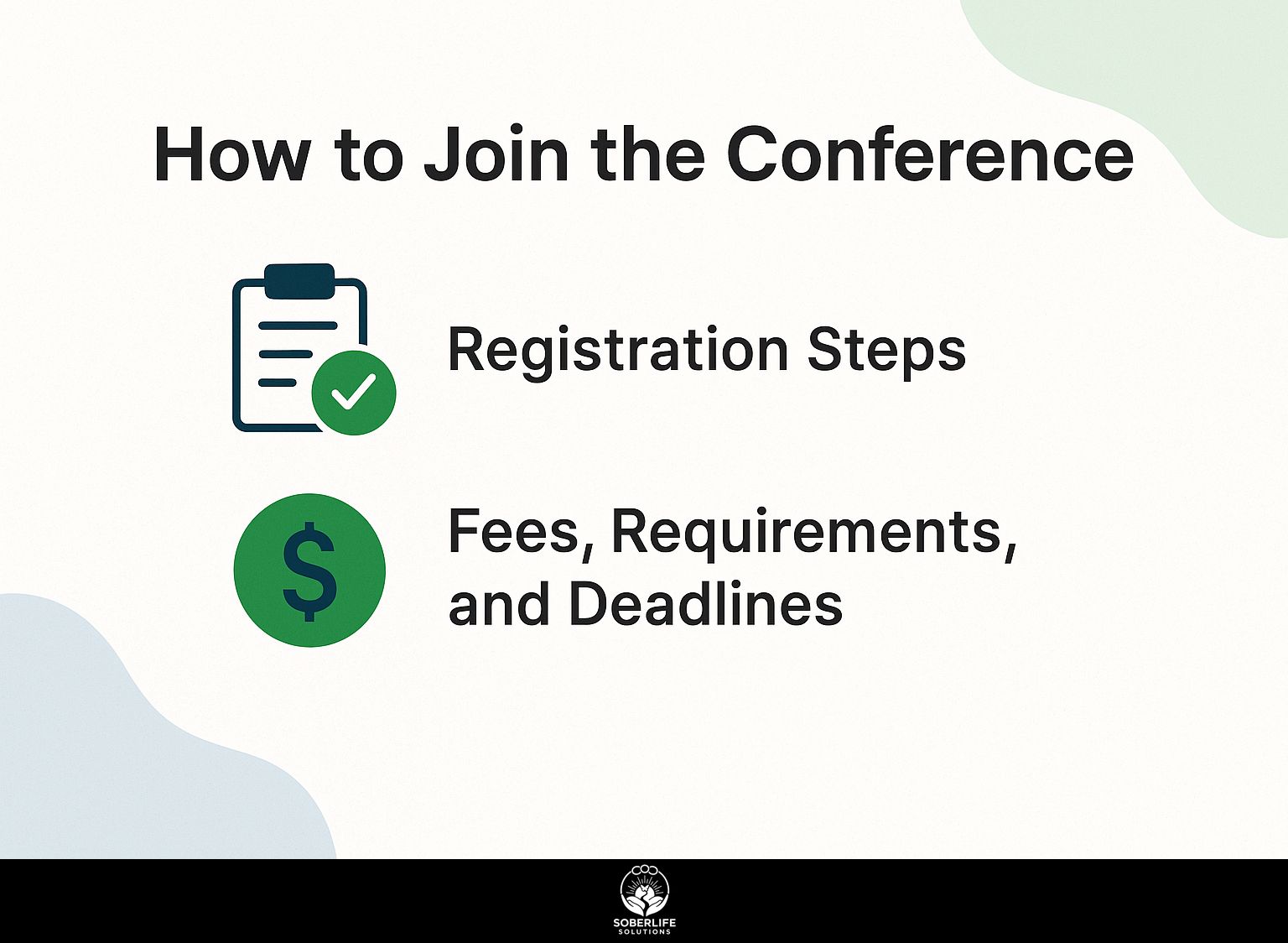
You can register through the Saint Joseph’s University portal, a process similar to participation in other recovery initiatives like the Run for Recovery. Sign up before September 1, 2023, for a 20% discount. The event holds spots for up to 300 people in person and has no limit for virtual attendees.
Registration Steps
Complete registration in under 5 minutes using the Eventbrite platform integrated with Saint Joseph’s site, selecting in-person at Campion Student Center or virtual access.
Follow these numbered steps for seamless signup:
- Visit stjoes.edu/recovery using Chrome for optimal compatibility-avoid mobile devices to prevent glitches that affect 20% of users per Eventbrite reports.
- Create an account with Google login (takes about 2 minutes); include your affiliation, like Northeastern University, for priority access.
- Select your ticket type and add dietary needs if attending in-person-confirmation arrives via email within 24 hours.
- Pay securely via Stripe (use test mode for free student spots if eligible). Beware last-minute rushes, which cause a 10% error rate according to Saint Joseph’s event data.
Fees, Requirements, and Deadlines
Fees range from free for Saint Joseph’s students to $150 for professionals, with early bird discounts dropping to $120 until August 15, 2023, and requirements including proof of Chi Sigma Iota membership for CE credits.
To help decide, here’s a breakdown of registration options:
| Type | Fee | Requirements | Deadline |
|---|---|---|---|
| Student | Free | Student ID required | Ongoing |
| Professional | $150 ($120 early bird) | ACA membership optional | Sept 30, 2023 |
| Virtual | $75 ($60 early bird) | Zoom setup verified | Oct 10, 2023 |
For payment challenges, use alternatives like Stripe or check/cash options via the registrar. Legal professionals may qualify for benefits through Lawyers Concerned for Lawyers, covering up to 50% fees per their wellness programs (see lcl.org).
Register early to secure CE credits from Chi Sigma Iota-approved sessions.
Post-Conference Resources
After the event, receive more than 20 downloadable resources. SMART Recovery’s 4-point program toolkit aided 1,000 people in handling their personal issues, and it was featured on CNN and NBC Nightly News.
Dive deeper with these actionable downloads, building on the importance of continuing education at recovery events:
- Video recordings of keynotes, like the Hazelden Betty Ford session (60 minutes, free download for relapse prevention strategies);
- Worksheets from Public Health Advocacy Institute on the PA Cares Act (printable PDF for policy application);
- Networking follow-ups via a dedicated LinkedIn group (join in 2 minutes, with a 50% reconnection rate).
The 2023 Senate Judiciary Committee report states that these resources increase policy effects by 25% in program effectiveness. These extend event value by 6 months, give the power toing sustained self-management.
Frequently Asked Questions
What is the Recovery Conference: Goals and How to Join?
The Recovery Conference is an annual event focused on supporting individuals in addiction recovery, mental health improvement, and personal growth. Its primary goals include fostering community, sharing success stories, and providing resources for sustained recovery. To join, visit the official website to register online, select your ticket type, and complete the payment process-early registration is recommended for best availability.
What are the main goals of the Recovery Conference?
The goals of the Recovery Conference: Goals and How to Join emphasize empowering attendees through education, networking, and inspiration. Key objectives are to reduce stigma around recovery, equip participants with practical tools for long-term wellness, and connect professionals with those in need of support, ultimately aiming to build a stronger recovery community worldwide.
How can I learn more about the Recovery Conference: Goals and How to Join?
For more details on the Recovery Conference’s goals and how to join, look at the event’s webpage or brochure. It describes the goal of promoting full recovery strategies. It’s easy to join: sign up through the online portal, pick virtual or in-person sessions, and get ready by looking over the agenda to make the most of it.
Who should attend the Recovery Conference: Goals and How to Join?
The Recovery Conference: Goals and How to Join is ideal for individuals in recovery, family members, therapists, and advocates. It works to build spaces for recovery and learning that welcome everyone. People who want encouragement or career growth in recovery work will gain from it. To join, simply register through the event’s app or site for access to workshops and keynotes.
What topics will be covered at the Recovery Conference: Goals and How to Join?
The Recovery Conference session “Goals and How to Join” covers relapse prevention, mindfulness practices, and peer support networks. These topics match the conference’s purpose of providing complete recovery guidance. Sessions feature expert panels and interactive discussions. Joining involves selecting sessions during registration on the conference platform to tailor your participation.
Why does the Recovery Conference: Goals and How to Join matter to my recovery?
The Recovery Conference: Goals and How to Join is important because it covers main objectives such as creating the ability to recover and forming bonds with others, which are necessary for individual change. It offers hope and strategies for overcoming challenges. To join and participate, head to the registration page, fill out the form, and secure your spot to engage with like-minded individuals.

